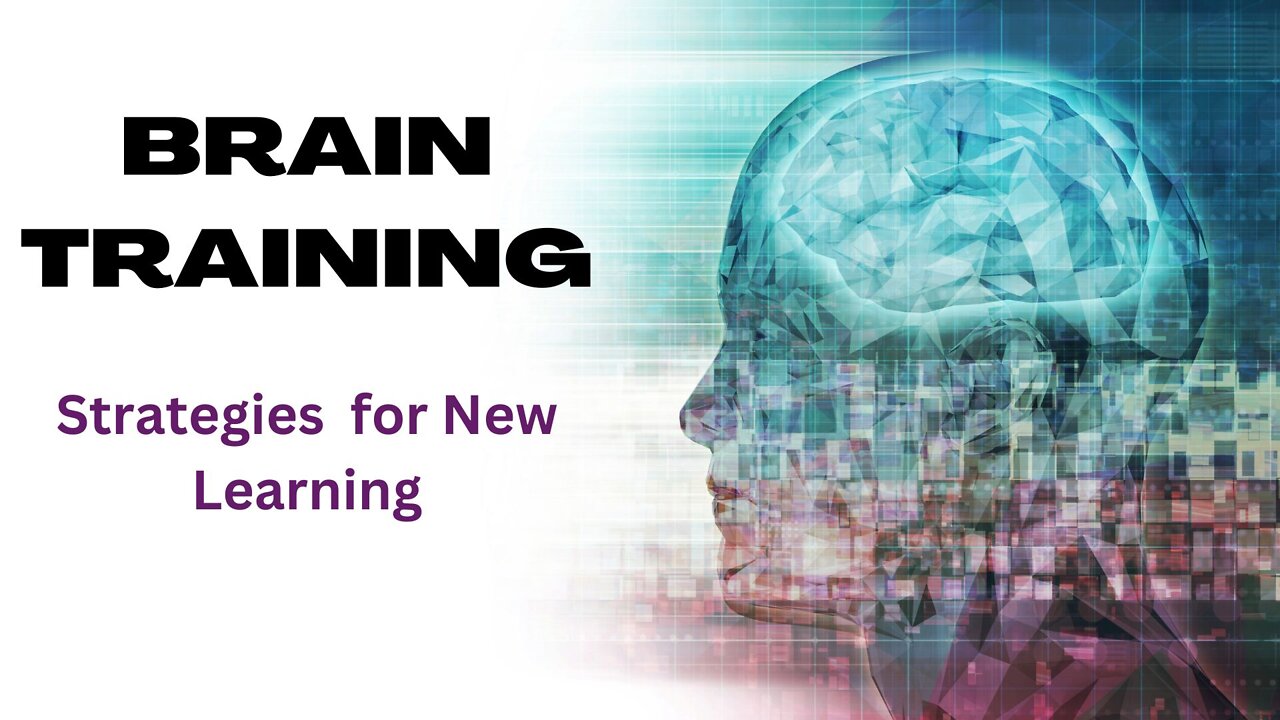Premium Only Content

3 Strategies for Improving New Learning by Practicing Mindfulness!!
3 Strategies for Improving New Learning by Practicing Mindfulness
When we consider how to keep our brains healthy, it’s common to focus on
external habits we can change, like our sleep patterns, exercise, and nutrition.
However, multiple scientific studies have proven that practicing mindfulness
increases the growth of the hippocampus, the area of the brain associated
with processing and storing information and memories. It seems we may have
overlooked our internal landscape as one of the ways we can improve how we
learn and remember new information.
Our brains rely on past experience and learnings to shape our reactions in the
present. This reliance can interfere with learning and remembering new
information when it conflicts with what we already believe. In other words,
concepts that conflict with what you already know to be true are more difficult
to remember. For example, you might find it more difficult to find items when
they reorganize the grocery store, or you may call a new acquaintance by the
name of someone they remind you of.
Studies now prove that increased hippocampal growth improves our working
memory. Therefore, practicing mindfulness is connected to both enhanced
brain structure and brain function.
Ready to put some simple strategies into place to make learning easier and
improve your memory?
1. Notice When You’re Struggling to Learn
The first step is to notice that you’re finding it difficult to learn new
information or that you need more reminders. Start paying attention to when
it takes you longer than usual to learn something new or when you need to
review new information more often.
2. Notice the New Information
We get so much data pouring into our brains every day that it can be a bit
overwhelming. Be intentional in noticing and differentiating between new and
old information, especially where there’s a conflict or a disconnect. It can help
to visualize the new information and form a strong image in your mind. Try
saying the new concept out loud a few times.
3. Notice What’s Happening Around You
Take a few minutes at various intervals during your day to notice what’s going
on around you. What task are you engaged in? What can you hear, see, smell,
taste, and feel? Pay attention to what thoughts are in your mind and how your
body feels. Now, allow the present moment to unfold. If thoughts or
judgments come up, just notice them and let them go.
These 3 simple steps can help you learn and remember new information, as
well as assist you in finding calm and serenity in a busy world.
As neuroscience discovers more about how the brain functions, no doubt we
will continue to learn how brain health is impacted not only by our external
lifestyle but also by the thoughts and associations that exist in our inner world.
-
 52:02
52:02
Candace Show Podcast
7 hours agoBecoming Brigitte: An Inaccessible Past | Ep 2
104K130 -
 LIVE
LIVE
2 MIKES LIVE
5 hours ago2 MIKES LIVE #176 News Breakdown Wednesday!
145 watching -
 LIVE
LIVE
I_Came_With_Fire_Podcast
5 hours agoGAZA TAKEOVER | USAID EXPLAINED | TARIFF TAKEDOWN
507 watching -
 37:14
37:14
The Based Mother
6 hours agoFULL OF IT! Crooked politicians say they care about children. Their actions tell a different story.
6.96K2 -
 1:54:12
1:54:12
Right Side Broadcasting Network
9 hours agoLIVE: President Trump Signs EOs; Pete Hegseth Meets with Netanyahu - 2/5/25
114K47 -
 1:51:41
1:51:41
Dr. Drew
7 hours agoPsychics Investigate DC Black Hawk & Philadelphia Medical Plane Crashes w/ Zach Vorhies + Eddie Conner & Andrew Anderson – Calling Out w/ Susan Pinsky – Ep 166
67.5K20 -
 1:03:04
1:03:04
In The Litter Box w/ Jewels & Catturd
1 day agoDemocrats Come Unglued | In the Litter Box w/ Jewels and Catturd Ep. 735 - 2/5/2025
92.6K65 -
 1:44:25
1:44:25
The Quartering
7 hours agoTrump Impeachment, Democrat Insurrection, Massive Scandal At Politico & DC Crash Update!
126K58 -
 LIVE
LIVE
Dr Disrespect
9 hours ago🔴LIVE - DR DISRESPECT - KINGDOM COME: DELIVERANCE 2 - FIRST IMPRESSION
2,215 watching -
 37:54
37:54
CryptoWendyO
6 hours ago $1.58 earnedBEST DAY IN CRYPTO HISTORY
39.8K4